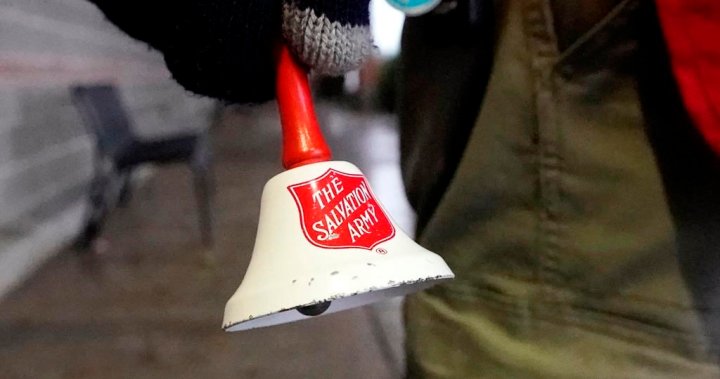The Salvation Army is facing a significant fundraising crisis due to the ongoing Canada Post strike, which has coincided with the charity’s crucial holiday fundraising period. Donations received through the mail, typically the cornerstone of the Army’s fundraising efforts, have plummeted by approximately 50% compared to the same period last year, resulting in a staggering $9.3 million shortfall. This drastic decline is particularly alarming as the holiday season, spanning from November 1st to December 31st, accounts for 65% of the Salvation Army’s annual fundraising, with two-thirds of that typically arriving via mail. The disruption caused by the postal strike has effectively paralyzed this vital fundraising channel, jeopardizing the organization’s ability to deliver essential services not only during the holiday season but also throughout the coming year.
The impact of the postal disruption is compounded by a simultaneous decline in donations received through the Salvation Army’s iconic red Christmas kettles. In-person donations collected at these kettles have decreased by a third, amounting to a $2 million loss compared to last year. This decline is attributed to a confluence of factors, including a shorter holiday shopping period due to a later U.S. Thanksgiving and the prevailing economic climate. The combination of reduced holiday spending and financial anxieties has likely constrained individuals’ discretionary income, leading to fewer donations. This financial strain affects both donors and those who rely on the Salvation Army’s services, creating a concerning situation for vulnerable populations.
While the Salvation Army has witnessed a modest $100,000 increase in online donations compared to last year, this increase is insufficient to offset the massive shortfall from mail and kettle donations. The reliance on traditional mail-in donations, particularly from older demographics who are more accustomed to this method, highlights a challenge in transitioning to digital fundraising platforms. Furthermore, the mail-in appeals serve a broader purpose beyond soliciting funds, offering stories of hope and impact that connect donors with the organization’s mission. This personal touch, absent in online transactions, reinforces the significance of mail-in contributions for building donor engagement and conveying the real-world impact of their generosity.
The Salvation Army is deeply concerned about the potential repercussions of this funding crisis on its ability to serve vulnerable Canadians. The organization provides a lifeline to countless individuals and families across the country, offering vital services such as food banks, shelter programs, emergency relief, and other essential support systems. The significant drop in donations threatens to curtail these crucial services, leaving those in need even more vulnerable during a time of increasing economic hardship and social challenges. The potential consequences are far-reaching and underscore the urgent need to address the funding shortfall to ensure the continued delivery of essential services.
In response to this precarious situation, the Salvation Army is appealing to the federal government to consider extending the deadline for charity-related tax deductions. The organization proposes moving the deadline from the end of the calendar year to the end of January or February. This extension would allow donors to make contributions later than usual while still receiving tax credits for the 2024 tax year. While acknowledging that tax incentives are not the primary motivator for charitable giving, the Salvation Army recognizes that it can be a contributing factor. The concern is that without the tax incentive, potential donors facing financial constraints due to the holiday season and economic uncertainties may forgo their donations altogether, further exacerbating the funding gap.
The ongoing postal strike, initiated by the Canadian Union of Postal Workers (CUPW) on November 15th, revolves around issues such as weekend delivery shift deployments and other labor-related concerns. The timing of the strike has unfortunately coincided with the Salvation Army’s most critical fundraising period, severely impacting its ability to collect donations through traditional mail channels. The organization emphasizes that its core donors are typically over the age of 55 and heavily reliant on postal services, further highlighting the vulnerability of this demographic to disruptions in mail delivery. The Salvation Army urges individuals to consider alternative donation methods, including online contributions through their website, donations by phone, or in-person donations at one of their numerous Christmas kettle locations across the country. The organization remains hopeful that a resolution to the postal strike can be achieved swiftly to minimize the further disruption to its crucial fundraising efforts and ensure its continued ability to provide vital services to those in need.










